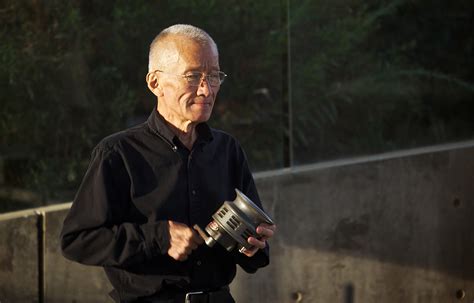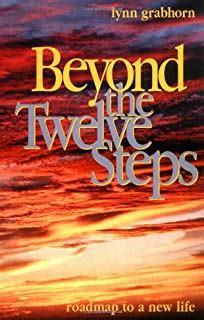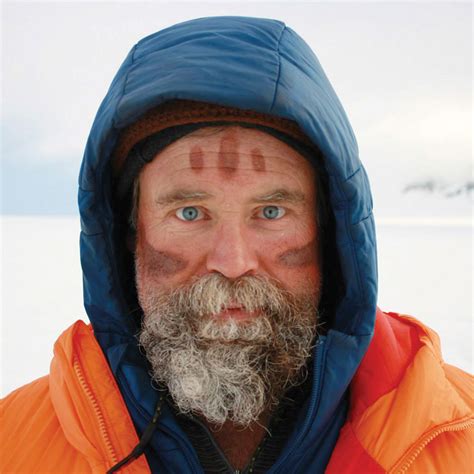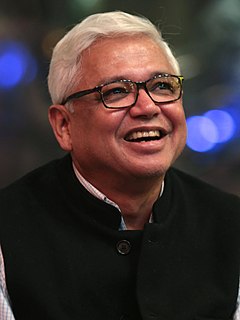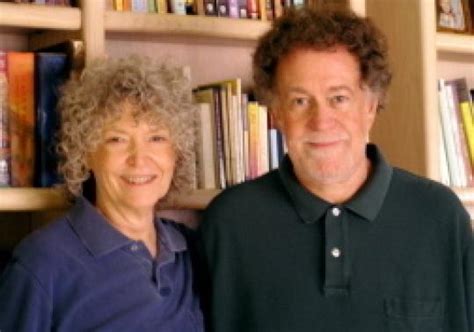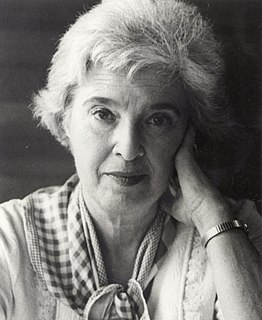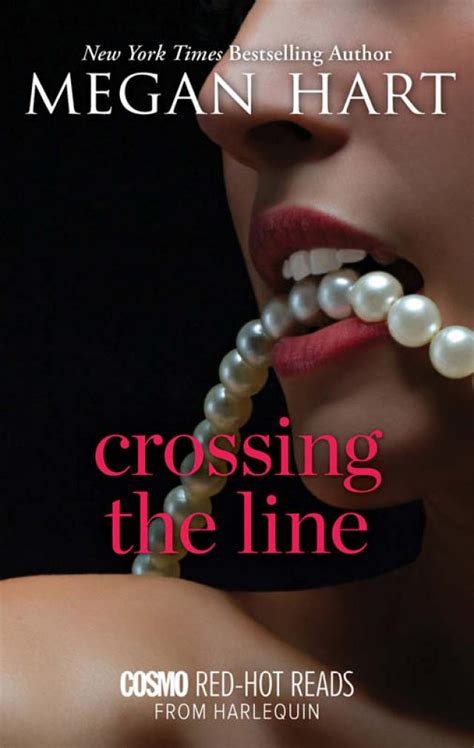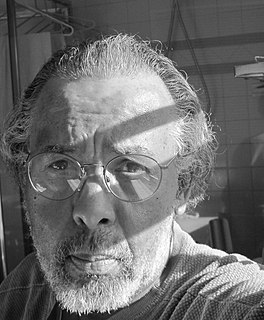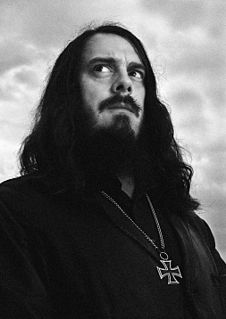Top 1200 In The Past Quotes & Sayings - Page 16
Explore popular In The Past quotes.
Last updated on December 22, 2024.
But thoughtless ingratitude is the armour of the young; without it, how would they ever get through life? The old wish the young well, but they wish them ill also: they would like to eat them up, and absorb their vitality, and remain immortal themselves. Without the protection of surliness and levity, all children would be crushed by the past - the past of others, loaded on their shoulders. Selfishness is their saving grace.
My son tells me, 'Do you realize you are the last one? The last person who was an eyewitness to the golden age?' Young people, even in Hollywood, ask me, 'Were you really married to Humphrey Bogart?' 'Well, yes, I think I was,' I reply. You realize yourself when you start reflecting - because I don't live in the past, although your past is so much a part of what you are - that you can't ignore it. But I don't look at scrapbooks. I could show you some, but I'd have to climb ladders, and I can't climb
I can't deceive myself out of the bare stark realization that no matter how enthusiastic you are, no matter how sure that character is fate, nothing is real, past or future, when you are alone in your room with the clock ticking loudly into the false cheerful brilliance of the electric light. And if you have no past or future which, after all, is all that the present is made of, why then you may as well dispose of the empty shell of present and commit suicide.
At the beginning, I felt sort of reluctant about my music from my past. But in the last couple of years, I felt good about what I did in the past. The way I see my work, time passes from the time I performed or recorded a work. When I look at it now, 25 years or 30 years ago, if I see that it has value today, I will agree to release it.
The universe is, instant by instant, recreated anew. There is in truth no past, only a memory of the past. Blink your eyes, and the world you see next did not exist when you closed them. Therefore, the only appropriate state of the mind is surprise. The only appropriate state of the heart is joy. The sky you see now, you have never seen before. The perfect moment is now. Be glad of it.
So rather than denying or stuffing your past, go ahead and look at it, but without judgment. Look at it, express it, admit it, acknowledge it, accept it, and move on. In other words, let your past become something that is simply a matter of fact. That's all. Express your disappointment, your regret, your anger, and then LET IT GO! If you don't, you will continue to draw to you the very events that you are still resenting or regretting.
You can accept or reject the way you are treated by other people, but until you heal the wounds of your past, you will continue to bleed. You can bandage the bleeding with food, with alcohol, with drugs, with work, with cigarettes, with sex, but eventually, it will all ooze through and stain your life. You must find the strength to open the wounds, stick your hands inside, pull out the core of the pain that is holding you in your past, the memories, and make peace with them.
If we could travel into the past, it's mind-boggling what would be possible. For one thing, history would become an experimental science, which it certainly isn't today. The possible insights into our own past and nature and origins would be dazzling. For another, we would be facing the deep paradoxes of interfering with the scheme of causality that has led to our own time and ourselves. I have no idea whether it's possible, but it's certainly worth exploring.
Old customs are easy to forget with the flashing of events in our lives. Easy to forget, like the heavy clothing we once wore to survive the winters. It is an old custom, the handing down of things. A good knife, a well-made pipe, a heavy robe. Tradition falls prey to constant change, and creativity becomes so revered that the past is a relic, only to be admired. But in this coat, I was held to the earth, pulled to the past by its weight.
The Toltec tradition tells us that we surrender a portion of our life force when we dwell on any unhealed wounding event from our past. The unprocessed emotions surrounding these events burden us and weigh heavily on our hearts. They must be dealt with if we want access to all of our vitality. Ultimately, what we will find is that forgiveness is the key to reclaiming all the life force locked in past hurt.
Learning the lessons of the past allows you to walk boldly in the light without running the risk of stumbling in the darkness. This is the way it's supposed to work. This is God's plan: father and mother, grandfather and grandmother teaching their children; children learning from them and then becoming a more righteous generation through their own personal experiences and opportunities. Learning the lessons of the past allows you to build personal testimony on a solid bedrock of obedience, faith, and the witness of the Spirit.
We have a choice. We can live in the past and be miserable and unhappy, or we can pick ourselves up and move ahead in life. When we choose to focus forward, we can find the energy and ability to remove any obstacles that may appear to be hindering our smooth progression. If you take stock of yourself and find you may be spending time frequently reliving unhappy experiences of the past, make the decision to rid yourself of the ties that bind you to a former way of life.
Istanbul is divided by time, not space. The first Istanbul is the Istanbul of the past. A long time ago, during the empire, it was beautiful, it was the glorious time of our nation, people say. Then, when they talk about today, they complain about it: It's very melancholic, it's very stressful. We've lost our golden age in the past, and now we're living in our dark era.
We are under the stifling regulation and taxes of a predominantly left-wing type of thinking and philosophy. The eight years of Barack Obama have shrouded this country in punitive regulations. We haven't had economic growth higher than one and a half percent for the last eight or nine years, and that was done on purpose. There have been robust times in the past, and there are a lot of people right now that are doing well and are growing. But generally it ought to be much better in the past. There needs to be an economic revival.
In the past, in order to continue as a candidate, a serious candidate, you had to be in the top three finishes in Iowa. You had to be in the top two out of New Hampshire. All our presidents elected in the past half-century finished either first or second in New Hampshire and in the top three in Iowa. That changed with the Citizens United, when we gave unlimited amounts of money.
I don't want you to look at my skin and think "white" or look at my heritage and think "Mexican." I want you to look at me and see me as a human being, and hopefully, we can get past all of this other stuff. It's asking a lot, of course, but there's only one way you fight extremists on both sides, whether it be racist or not, and that's by looking past me, getting bigger than that, letting them not affect you, drawing from it and sticking together with the like-minded people you have around you.
That is the simple secret of happiness. Whatever you are doing, don’t let past move your mind; don’t let future disturb you. Because the past is no more, and the future is not yet. To live in the memories, to live in the imagination, is to live in the non-existential. And when you are living in the non-existential, you are missing that which is existential. Naturally you will be miserable, because you will miss your whole life.
The ascendancy over men's minds of the ruins of the stupendous past, the past of history, legend and myth, at once factual and fantastic, stretching back and back into ages that can but be surmised, is half-mystical in basis. The intoxication, at once so heady and so devout, is not the romantic melancholy engendered by broken towers and mouldered stones; it is the soaring of the imagination into the high empyrean where huge episodes are tangled with myths and dreams; it is the stunning impact of world history on its amazed heirs.
I became what I am today at the age of twelve, on a frigid overcast day in the winter of 1975. I remember the precise moment, crouching behind a crumbling mud wall, peeking into the alley near the frozen creek. That was a long time ago, but it’s wrong what they say about the past, I’ve learned, about how you can bury it. Because the past claws its way out. Looking back now, I realize I have been peeking into that deserted alley for the last twenty-six years.
The infinite reservoir of future grace is flowing back through the present into the ever-growing pool of past grace. The inexhaustible reservoir is invisible except through the promises. But the ever-enlarging pool of past grace is visible; and God means for the certainty and beauty and depth to strengthen our faith in future grace.
Hamas must agree to first recognize Israel, second to end all violence, third to accept past agreements. Try to find a mention of the fact that the United States and Israel reject all three of those. They obviously don't recognize Palestine, they certainly don't withdraw the use of violence or the threat of it - in fact they insist on it - and they don't accept past agreements, including the road map.
Walter Benjamin knew that the break in tradition and loss of authority which occurred in his lifetime were irreparable, and he concluded that he had to discover new ways of dealing with the past. In this he became a master when he discovered that the transmissibility of the past had been replaced by the citability and that in place of its authority there had arisen a strange power to settle down, piecemeal, in the present and to deprive it of ‘peace of mind,’ the mindless peace of complacency.
But it is fit that the Past should be dark; though the darkness is not so much a quality of the past as of tradition. It is not adistance of time, but a distance of relation, which makes thus dusky its memorials. What is near to the heart of this generation is fair and bright still. Greece lies outspread fair and sunshiny in floods of light, for there is the sun and daylight in her literature and art. Homer does not allow us to forget that the sun shone,--nor Phidias, nor the Parthenon.
These CEOs, man ... If you're that ruthless, you're a scary dude. I tell you, now when I walk past a little gang banger, I don't even blink. But if I see a white dude with a Wall Street Journal, I haul ass. Before I walk past the Arthur Andersen building, I cut through the projects. If you cut through the projects, you may just lose what you have on you that day. I ain't never been mugged of my whole future.
We were like the Beatles, Dad.' 'I know you think that, sweetie' 'Seriously. Mom is John, you're Paul, I'm George, and Ice Cream is Ringo.' 'Ice Cream,' I said. 'Resentful of the past, fearful of the future...everytime we saw Ice Cream sitting there with her mouth open, we'd say, Poor Ice Cream, resentful of the past, fearful of the future.
I had to stop linking every single thing that happened to me with Kennedy. Realization dawned then, that he was still my default. Over the past three years, we’d become each other’s habit. And though he’d broken his habit of me when he walked away, I’d not broken my habit of him. I was still tethering him to my present, to my future. The truth was, he now belonged only to my past, and it was time I began to accept it, as much as it hurt to do so.
The past history of human belief is a cautionary tale. We have killed thousands of our fellow human beings because we believed they had signed a contract with the devil, and had become witches. We still kill more than a thousand people each year for witchcraft. In my view, there is only one hope for humankind to emerge from what Carl Sagan called "the demon-haunted world" of our past. That hope is science.
My concern today is with the painting of manners of the present. The past is interesting not only by reason of the beauty which could be distilled from it by those artists for whom it was the present, but also precisely because it is the past, for its historical value. It is the same with the present. The pleasure which we derive from the representation of the present is due not only to the beauty with which it can be invested, but also to its essential quality of being present
I grew up listening to my grandfather's stories of our musical past. He would often talk about the orchestras that played at concerts and the musicians who played on Sunday evenings on street corners. By the time I grew up in the '80s, all of this was a thing of the past. I lived vicariously through his stories and often wondered what it would have felt like to have been part of his generation.
You have a lot to learn, young man. Philosophy. Theology. Literature. Poetry. Drama. History. Archeology. Anthropology. Mythology. Music. These are your tools as much as brush and pigment. You cannot be an artist until you are civilized. You cannot be civilized until you learn. To be civilized is to know where you belong in the continuum of our art and your world. To surmount the past, you must know the past.
Memory is corrupted and ruined by a crowd of memories. If I am going to have a true memory, there are a thousand things that must first be forgotten. Memory is not fully itself when it reaches only into the past. A memory that is not alive to the present does not remember the here and now, does not remember its true identity, is not memory at all. He who remembers nothing but facts and past events, and is never brought back into the present, is a victim of amnesia.
The ego, as a collection of our past experiences, is continually offering miserable lines of thought. It's as if there were a stream with little fish swimming by, and when we hook one of them there is a judgment. The ego is constantly judging everybody and everything. It has its constant little chit chat about things that can happen in the future, things about the past, too, and these are the little fish that swim by. And what we learn to do-this is why it takes work-is to not reach out and grab a fish.
How the holy and the profane mix in the light of day and at the end of life is sometimes the most beautiful thing in this world and a compassionate entry into the next. After failure and defeat, a concentration upon certain beauties, though forever lost and unretrievable, can lift the wounded past roundedness and the dying past dying, protecting them with an image, still and bright, that will ride with them on their long ride, never to fade and never to retreat.
And so it is with our own past. It is a labour in vain to attempt to recapture it: all the efforts of our intellect must prove futile. The past is hidden somewhere outside the realm, beyond the reach of intellect, in some material object (in the sensation which that material object will give us) of which we have no inkling. And it depends on chance whether or not we come upon this object before we ourselves must die.
Autonomy means women defining themselves and the values by which they will live, and beginning to think of institutional arrangements which will order their environment in line with their needs.... Autonomy means moving out from a world in which one is born to marginality, to a past without meaning, and a future determined by others--into a world in which one acts and chooses, aware of a meaningful past and free to shape one's future.
History is the art of making an argument about the past by telling a story accountable to evidence. In the writing of history, a story without an argument fades into antiquarianism; an argument without a story risks pedantry. Writing history requires empathy, inquiry, and debate. It requires forswearing condescension, cant, and nostalgia. The past isn’t quaint. Much of it, in fact, is bleak.
The past doesn't change no matter how much time you spend thinking about it. Good and bad all add up to the whole. Take away one piece, no matter how small, and the whole changes. Whether it's optimism, pessimism or fatalism, I don't spend my time wishing for the past to be different so present would be different, too. I control my future with what I choose now.
Socially and politically, we seem to be living in dire times, worse times than in the past. But there were far worse horrors in our past. The writer's role is to be a truth sayer. I sincerely believe that each society, each country lives by a particular fantasy vision, a fantasy vision of itself. The truth of how they live is hardly ever faced.
We believe, from everything we have been told by the intelligence community, by 12 years of history with Iraq, by the experience of the U.N. inspectors and by other intelligence agencies in other countries that Saddam Hussein had the intention to develop weapons of mass destruction and to have such weapons, and that was a sound judgment which I still believe to this day because he had had them in the past, he'd used them in the past.
Every generation rewrites the past. In easy times history is more or less of an ornamental art, but in times of danger we are driven to the written record by a pressing need to find answers to the riddles of today.... In times of change and danger when there is a quicksand of fear under men's reasoning, a sense of continuity with generations gone before can stretch like a lifeline across the scary present and get us past that idiot delusion of the exceptional Now that blocks good thinking.
Remembering our past, carrying it around with us always, may be the necessary requirement for maintaining, as they say, the wholeness of the self. To ensure that the self doesn’t shrink, to see that it holds on to its volume, memories have to be watered like potted flowers, and the watering calls for regular contact with the witnesses of the past, that is to say, with friends. They are our mirror; our memory; we ask nothing of them but that they polish the mirror from time to time so we can look at ourselves in it.
A person shows signs of clutching on too fast, of being needy, of not hearing the word "no," of jealousy, of guarding you and your freedom. But the signs can be so small they skitter right past you. Sometimes they dance past, looking satiny, something you should applaud. Someone's jealousy can make you feel good. Special. But it's not even about you. It's about a hand that is already gripping. It's about their need, circling around your throat
I felt like lying down by the side of the trail and remembering it all. The woods do that to you, they always look familiar, long lost, like the face of a long-dead relative, like an old dream, like a piece of forgotten song drifting across the water, most of all like golden eternities of past childhood or past manhood and all the living and the dying and the heartbreak that went on a million years ago and the clouds as they pass overhead seem to testify (by their own lonesome familiarity) to this feeling.
What would happen if history could be rewritten as casually as erasing a blackboard? Our past would be like the shifting sands at the seashore, constantly blown this way or that by the slightest breeze. History would be constantly changing every time someone spun the dial of a time machine and blundered his or her way into the past. History, as we know it, would be impossible. It would cease to exist.
I valued the experience of making the recordings, and I value the performances contained therein, and I value so much of what they can represent. I also think they're a terrific listening experience. Putting them out this way was a way of trying to maintain and nurture the relationship with the audience and also shine a light on the recent past, because we are so apt to be forgetful as human beings that there was such a thing as a recent past. These are some of the reasons for making this record.
Even the mistakes, even everything bad that happened, I wouldn’t change because then I wouldn’t be the person that I am today. The past is the past. I just want to focus on the future, and getting better, not making the same mistakes and just becoming a better person, a better artist. Just a better everything.
Jonathan Meese is not interested in the history of reality. Everything radical and precisely graphic is sustainable. Human ideologies like religions and politics are based on the past and therefore irrelevant to art. Art always transforms radicalism of the past into the future. Art is always the total time machine. Jonathan Meese is interested in the history of the future. Art is never nostalgic.
Clearly, sustained low inflation implies less uncertainty about the future, and lower risk premiums imply higher prices of stocks and other earning assets. We can see that in the inverse relationship exhibited by price/earnings ratios and the rate of inflation in the past. But how do we know when irrational exuberance has unduly escalated asset values, which then become subject to unexpected and prolonged contractions as they have in Japan over the past decade?
Don´t be unnecessarily burdened by the past. Go on closing the chapters that you have read; there is no need to go back again and again. And never judge anything of the past from the new perspective that is arriving, because the new is new, incomparably new and the old was right in its own context, and the new is right in its own context.
[talking about the Holocaust] 'But to put something in context is a step towards saying it can be understood and that it can be explained. And if it can be explained that it can be explained away.' 'But this is History. Distance yourselves. Our perspective on the past alters. Looking back, immediately in front of us is dead ground. We don't see it, and because we don't see it this means that there is no period so remote as the recent past. And one of the historian's jobs is to anticipate what our perspective of that period will be... even on the Holocaust.
I'm not saying we are not to be held accountable. What I'm saying is that we need to appreciate past, if you don't appreciate past, you cannot understand why we are like this, why the churches and mosques are controlling our society, why Africans feel inferior. Why are our girls bleaching or make long hair? They all want to be white, Why are they not proud? Why are we not proud of name, of our clothes?
Well, we think that time "passes," flows past us, but what if it is we who move forward, from past to future, always discovering the new? It would be a little like reading a book, you see. The book is all there, all at once, between its covers. But if you want to read the story and understand it, you must begin with the first page, and go forward, always in order. So the universe would be a very great book, and we would be very small readers.





